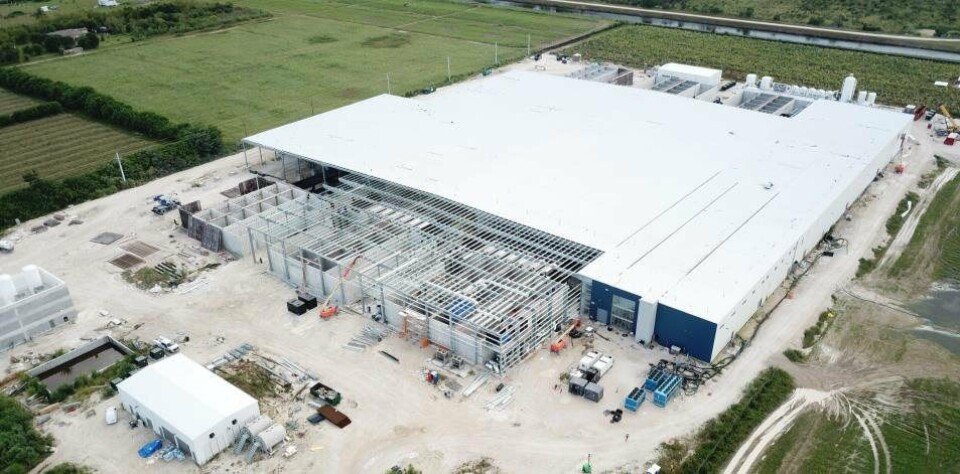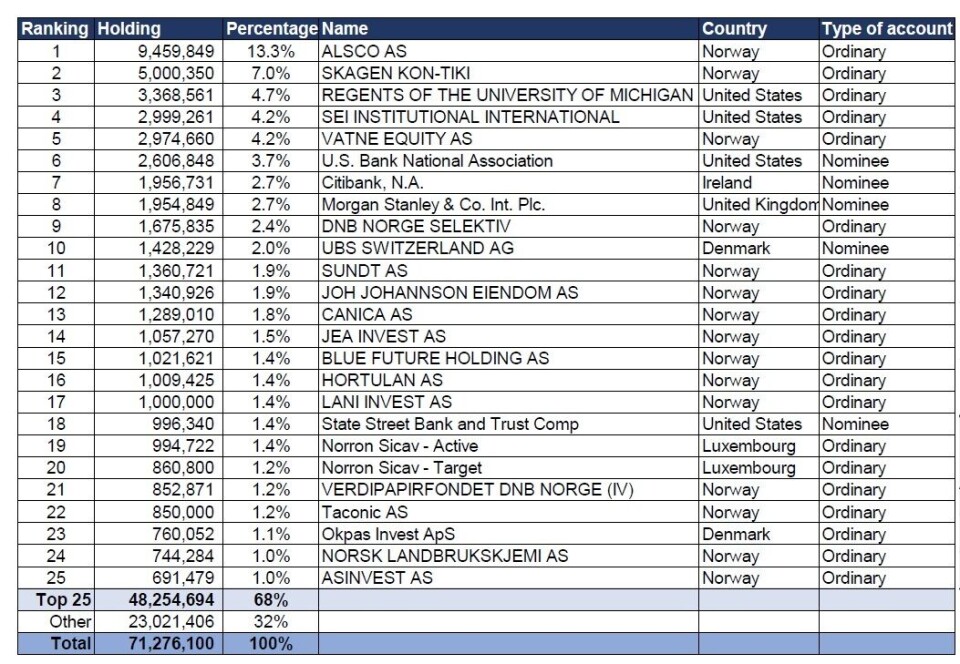
Smoltification milestone for Atlantic Sapphire
Land-based salmon farmer Atlantic Sapphire today released its key figures for the first half of 2019. The company indicated that its first 2.5 million fish in the United States have begun to reach the smoltification stage.
The Norwegian-based company, which has an existing operation in Denmark and is building a huge on-land facility in Miami, reported sales of US $2 million in the first half of 2019, compared to $4m in the first half of 2018.
With the first Miami fish yet to reach market size, all of this revenue is from the activity in Denmark. Operating profit (EBITDA) ended at $-4.5m (H1 2018 -4.3m) and pre-tax profit of $-9.4m ($6m).

Equity of $262m
The activity in Denmark - which thus generated all of the company’s income during the period - had an operating profit of $-0.8m ($-0.7m) and a profit before tax of $-2.5m ($-1.4m).
The company’s finances are still healthy, with equity of $262m and an equity ratio of 85%.
The company's share price has risen from about NOK 47 ($5.25) at an initial public offering in May 2018 to around NOK 110 in the last few days. However, just after the opening of the Oslo Stock Exchange today, the company dropped to about NOK 102. The company thus has a market value of approximately NOK 7.5 billion ($838.5m).
950-tonne biomass
Atlantic Sapphire, which as well as its facilities in the US and Denmark also has a Norwegian project under construction, reports that it has 3.6 million fish and a total biomass of about 950 tonnes. The company currently has 70 employees.
The company reports stable production and decent prices in Denmark.
In the US, one of the most important events of the period is that the first fish have reached smoltification and are ready for transfer to seawater tanks.
Good growth
The biggest fish in the US operation are now over 100 grams and have good growth.
The company report states that delays in the construction of a new seawater intake in Denmark had a poor impact on quality and growth, and a forced slaughter was conducted to reduce the biomass from 1,150 tonnes to 870 tonnes and improve the quality of the water.























































